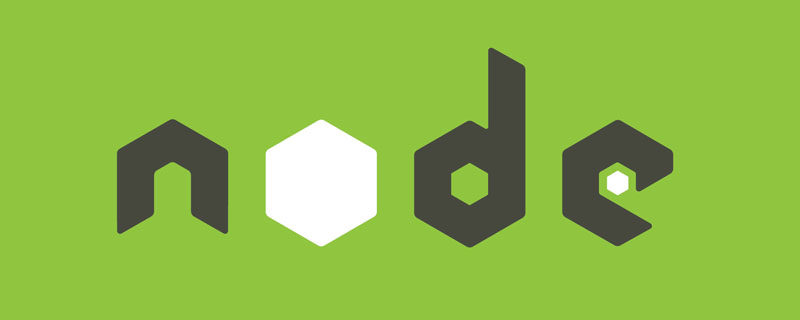 Web Front-end
Web Front-end JS Tutorial
JS Tutorial Introduction to the use of the Request module in Node.js to handle HTTP protocol requests
Introduction to the use of the Request module in Node.js to handle HTTP protocol requestsThis article mainly introduces the basic usage tutorial of the Request module in Node.js to handle HTTP requests. request also supports OAuth signature requests, which is very good and powerful. Friends who need it can refer to it
Here Introducing a Node.js module - request. With this module, http requests become super simple.

Request is super simple to use and supports https and redirection.
var request = require('request');
request('http://www.google.com', function (error, response, body) {
if (!error && response.statusCode == 200) {
console.log(body) // 打印google首页
}
})
Stream:
Any response can be output to a file stream.
request('http://google.com/doodle.png').pipe(fs.createWriteStream('doodle.png'))
In turn, you can also pass the file to a PUT or POST request. If no header is provided, the file extension will be detected and the corresponding content-type will be set in the PUT request.
fs.createReadStream('file.json').pipe(request.put('http://mysite.com/obj.json'))
Requests can also be piped to themselves. In this case, the original content-type and content-length will be retained.
request.get('http://google.com/img.png').pipe(request.put('http://mysite.com/img.png'))
Form:
request supports application/x-www-form-urlencoded and multipart/form-data to implement form upload.
x-www-form-urlencoded is simple:
request.post('http://service.com/upload', {form:{key:'value'}})
or:
request.post('http://service.com/upload').form({key:'value'})
When using multipart/form-data, you don’t have to worry about trivial matters such as setting headers. request will help you solve it.
var r = request.post('http://service.com/upload') var form = r.form() form.append('my_field', 'my_value') form.append('my_buffer', new Buffer([1, 2, 3])) form.append('my_file', fs.createReadStream(path.join(__dirname, 'doodle.png')) form.append('remote_file', request('http://google.com/doodle.png'))
HTTP authentication:
request.get('http://some.server.com/').auth('username', 'password', false);
or
request.get('http://some.server.com/', {
'auth': {
'user': 'username',
'pass': 'password',
'sendImmediately': false
}
});
sendImmediately, defaults to true, sends a basic authentication header. After setting it to false, it will retry when receiving a 401 (the server's 401 response must include the WWW-Authenticate specified authentication method).
Digest authentication is supported when sendImmediately is true.
OAuth login:
// Twitter OAuth
var qs = require('querystring')
, oauth =
{ callback: 'http://mysite.com/callback/'
, consumer_key: CONSUMER_KEY
, consumer_secret: CONSUMER_SECRET
}
, url = 'https://api.twitter.com/oauth/request_token'
;
request.post({url:url, oauth:oauth}, function (e, r, body) {
// Ideally, you would take the body in the response
// and construct a URL that a user clicks on (like a sign in button).
// The verifier is only available in the response after a user has
// verified with twitter that they are authorizing your app.
var access_token = qs.parse(body)
, oauth =
{ consumer_key: CONSUMER_KEY
, consumer_secret: CONSUMER_SECRET
, token: access_token.oauth_token
, verifier: access_token.oauth_verifier
}
, url = 'https://api.twitter.com/oauth/access_token'
;
request.post({url:url, oauth:oauth}, function (e, r, body) {
var perm_token = qs.parse(body)
, oauth =
{ consumer_key: CONSUMER_KEY
, consumer_secret: CONSUMER_SECRET
, token: perm_token.oauth_token
, token_secret: perm_token.oauth_token_secret
}
, url = 'https://api.twitter.com/1/users/show.json?'
, params =
{ screen_name: perm_token.screen_name
, user_id: perm_token.user_id
}
;
url += qs.stringify(params)
request.get({url:url, oauth:oauth, json:true}, function (e, r, user) {
console.log(user)
})
})
})
Customized HTTP header
User-Agent and the like can be found in set in the options object. In the following example, we call the github API to find out the collection number and derivative number of a certain warehouse. We use a customized User-Agent and https.
var request = require('request');
var options = {
url: 'https://api.github.com/repos/mikeal/request',
headers: {
'User-Agent': 'request'
}
};
function callback(error, response, body) {
if (!error && response.statusCode == 200) {
var info = JSON.parse(body);
console.log(info.stargazers_count +"Stars");
console.log(info.forks_count +"Forks");
}
}
request(options, callback);
cookies:
By default, cookies are Disabled. Set jar to true in defaults or options so that subsequent requests will use cookies.
var request = request.defaults({jar: true})
request('http://www.google.com', function () {
request('http://images.google.com')
})
By creating a new instance of request.jar(), you can use Customize cookies instead of requesting the global cookie jar.
var j = request.jar()
var request = request.defaults({jar:j})
request('http://www.google.com', function () {
request('http://images.google.com')
})
or
var j = request.jar()
var cookie = request.cookie('your_cookie_here')
j.setCookie(cookie, uri, function (err, cookie){})
request({url: 'http://www.google.com', jar: j}, function () {
request('http://images.google.com')
})
Note that setCookie requires at least three parameters, the last one Is the callback function.
You can use the pipe method of request to easily obtain the file stream of the image
var request = require('request'), fs = require('fs'); request('https://www.google.com.hk/images/srpr/logo3w.png').pipe(fs.createWriteStream('doodle.png'));
For more usage methods and instructions, click here to continue reading :https://github.com/mikeal/request/
Example
A very simple example is written here to grab hotels from Qunar.com Query data (get the price ranking of each room type in the hotel within a certain period of time):
var request = require('request'),
fs = require('fs');
var reqUrl = 'http://hotel.qunar.com/price/detail.jsp?fromDate=2012-08-18&toDate=2012-08-19&cityurl=shanghai_city&HotelSEQ=shanghai_city_2856&cn=5';
request({uri:reqUrl}, function(err, response, body) {
//console.log(response.statusCode);
//console.log(response);
//如果数据量比较大,就需要对返回的数据根据日期、酒店ID进行存储,如果获取数据进行对比的时候直接读文件
var filePath = __dirname + '/data/data.js';
if (fs.exists(filePath)) {
fs.unlinkSync(filePath);
console.log('Del file ' + filePath);
}
fs.writeFile(filePath, body, 'utf8', function(err) {
if (err) {
throw err;
}
console.log('Save ' + filePath + ' ok~');
});
console.log('Fetch ' + reqUrl + ' ok~');
});This example comes from a friend who is in the hotel business and wants to know what he provides to customers on the website Price competitiveness:
1. If the price offered is too low, you will make less money, so if your price is the lowest, you need to see what the second lowest is, and then decide Whether to adjust;
2. If the price provided is too high, the ranking results will be relatively low. There will be no customers to book the hotel, and the business will be gone.
Because the hotel is made There are many booking businesses, for example, more than 2,000. If you rely on manual checking of rankings one by one, it will be passive, and it will be difficult to expand. Therefore, I analyzed his needs and it is feasible and can be made into a good one. Real-time warning system (of course the data will be automatically refreshed on the page every 5 to 10 minutes). Only in this way can profits be maximized, the work efficiency of the sales and customer departments be improved, and the number of hotel cooperations and the company's personnel expansion be accelerated:
1. Do not lose money and do not do loss-making transactions;
2. If you find that the price provided is too low or too high, you need to support calling the API interface of the platform to directly modify the price;
3. There is a function to automatically generate analysis reports to analyze competitors' price adjustment strategies. Changes;
The above is the entire content of this article. I hope it will be helpful to everyone's study. For more related content, please pay attention to the PHP Chinese website!
Related recommendations:
Introduction to module definition in nodejs
Learning about the cluster module in Node
nodejs method to implement bigpipe asynchronous loading of pages
The above is the detailed content of Introduction to the use of the Request module in Node.js to handle HTTP protocol requests. For more information, please follow other related articles on the PHP Chinese website!
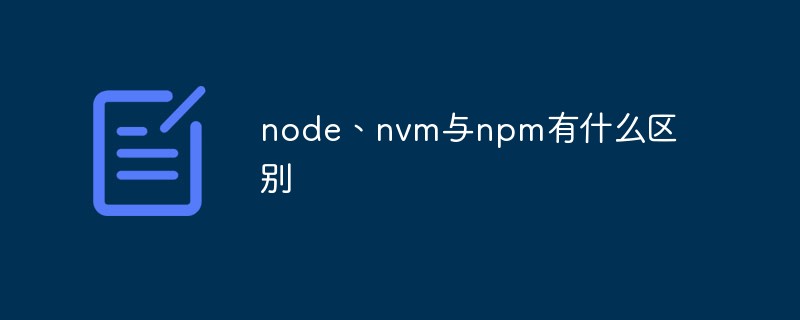 node、nvm与npm有什么区别Jul 04, 2022 pm 04:24 PM
node、nvm与npm有什么区别Jul 04, 2022 pm 04:24 PMnode、nvm与npm的区别:1、nodejs是项目开发时所需要的代码库,nvm是nodejs版本管理工具,npm是nodejs包管理工具;2、nodejs能够使得javascript能够脱离浏览器运行,nvm能够管理nodejs和npm的版本,npm能够管理nodejs的第三方插件。
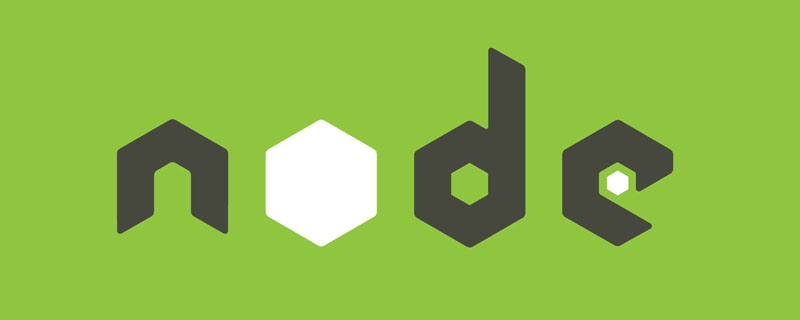 Vercel是什么?怎么部署Node服务?May 07, 2022 pm 09:34 PM
Vercel是什么?怎么部署Node服务?May 07, 2022 pm 09:34 PMVercel是什么?本篇文章带大家了解一下Vercel,并介绍一下在Vercel中部署 Node 服务的方法,希望对大家有所帮助!
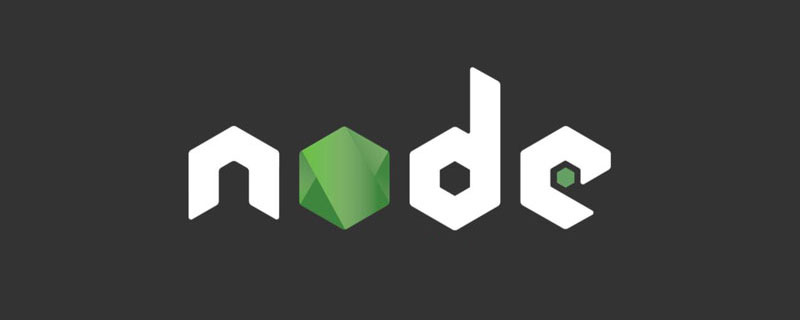 node爬取数据实例:聊聊怎么抓取小说章节May 02, 2022 am 10:00 AM
node爬取数据实例:聊聊怎么抓取小说章节May 02, 2022 am 10:00 AMnode怎么爬取数据?下面本篇文章给大家分享一个node爬虫实例,聊聊利用node抓取小说章节的方法,希望对大家有所帮助!
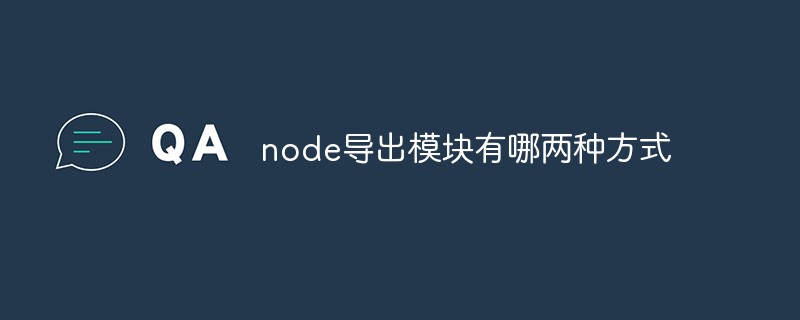 node导出模块有哪两种方式Apr 22, 2022 pm 02:57 PM
node导出模块有哪两种方式Apr 22, 2022 pm 02:57 PMnode导出模块的两种方式:1、利用exports,该方法可以通过添加属性的方式导出,并且可以导出多个成员;2、利用“module.exports”,该方法可以直接通过为“module.exports”赋值的方式导出模块,只能导出单个成员。
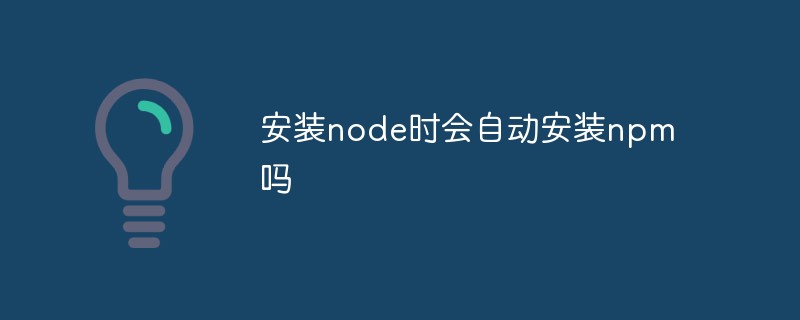 安装node时会自动安装npm吗Apr 27, 2022 pm 03:51 PM
安装node时会自动安装npm吗Apr 27, 2022 pm 03:51 PM安装node时会自动安装npm;npm是nodejs平台默认的包管理工具,新版本的nodejs已经集成了npm,所以npm会随同nodejs一起安装,安装完成后可以利用“npm -v”命令查看是否安装成功。
 node中是否包含dom和bomJul 06, 2022 am 10:19 AM
node中是否包含dom和bomJul 06, 2022 am 10:19 AMnode中没有包含dom和bom;bom是指浏览器对象模型,bom是指文档对象模型,而node中采用ecmascript进行编码,并且没有浏览器也没有文档,是JavaScript运行在后端的环境平台,因此node中没有包含dom和bom。
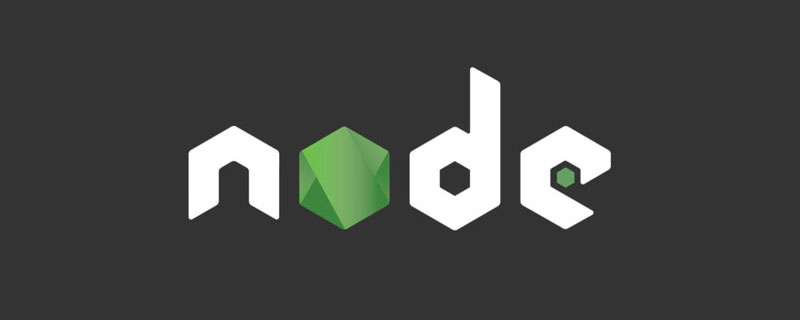 什么是异步资源?浅析Node实现异步资源上下文共享的方法May 31, 2022 pm 12:56 PM
什么是异步资源?浅析Node实现异步资源上下文共享的方法May 31, 2022 pm 12:56 PMNode.js 如何实现异步资源上下文共享?下面本篇文章给大家介绍一下Node实现异步资源上下文共享的方法,聊聊异步资源上下文共享对我们来说有什么用,希望对大家有所帮助!


Hot AI Tools

Undresser.AI Undress
AI-powered app for creating realistic nude photos

AI Clothes Remover
Online AI tool for removing clothes from photos.

Undress AI Tool
Undress images for free

Clothoff.io
AI clothes remover

AI Hentai Generator
Generate AI Hentai for free.

Hot Article

Hot Tools

Dreamweaver Mac version
Visual web development tools

VSCode Windows 64-bit Download
A free and powerful IDE editor launched by Microsoft

MinGW - Minimalist GNU for Windows
This project is in the process of being migrated to osdn.net/projects/mingw, you can continue to follow us there. MinGW: A native Windows port of the GNU Compiler Collection (GCC), freely distributable import libraries and header files for building native Windows applications; includes extensions to the MSVC runtime to support C99 functionality. All MinGW software can run on 64-bit Windows platforms.

PhpStorm Mac version
The latest (2018.2.1) professional PHP integrated development tool

SAP NetWeaver Server Adapter for Eclipse
Integrate Eclipse with SAP NetWeaver application server.




